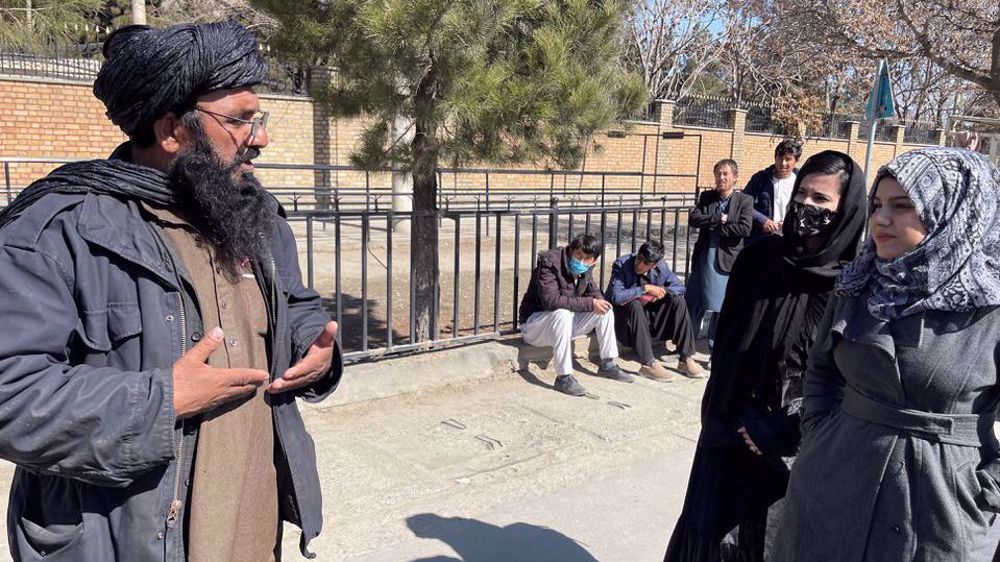Several international nongovernmental organizations (NGOs) have suspended their activities in Afghanistan after the country's Taliban-run government ordered them to stop female employees from working.
Three of the organizations -- Save the Children, the Norwegian Refugee Council, and CARE International -- announced the decision through a joint statement on Sunday.
"We cannot effectively reach children, women, and men in desperate need in Afghanistan without our female staff," the statement said.
The agencies noted that they would have not been able to aid millions of Afghan people since August last year had it not been for their employment of effective female workforce.
Separately, the International Rescue Committee (IRC), a fourth foreign NGO, also said in a statement that it was suspending its services in the country, citing similar reasons. The IRC said it employs more than 8,000 people in Afghanistan, over 3,000 of whom are women.
The statements came a day after the Taliban imposed an indefinite ban on female staff's working at local and international NGOs.
Earlier, international aid agency AfghanAid said it was immediately suspending operations while it consulted with other organisations, and that other NGOs were taking similar actions.
The International Committee of the Red Cross in Afghanistan also on Sunday expressed concern at the move and an earlier bar on women from attending university, warning of "catastrophic humanitarian consequences in the short to long term."
Reacting to foreign NGOs' move, Taliban spokesman Zabihullah Mujahid, defended the measure, saying, "We do not allow anyone to talk rubbish or make threats regarding the decisions of our leaders under the title of humanitarian aid."
We do not allow anyone to talk rubbish or make threats regarding the decisions of our leaders under the title of Humanitarian aid.
In a letter sent by the ministry of economy to all licensed NGOs on Saturday, the Taliban administration obliged the organizations to stop their female employees from coming to work, citing some female employees' failure to observe the administration’s dress code for women.
The United Nations has condemned the controversial decision, saying it will hamper humanitarian operations, and calling for a meeting with the Taliban to seek clarity.
In a statement, UN spokesman Stephane Dujarric noted that Secretary-General Antonio Guterres was “deeply disturbed by the reported order of the de facto Taliban authorities" and that the UN chief “reiterates the rights of all women to participate in the workforce thus contributing to the greater good.”
In a separate statement, the UN humanitarian coordination office in Afghanistan condemned the latest round of restrictions on women’s rights and emphasized that any such order by the authorities “would violate the most fundamental rights of women, as well as be a clear breach of humanitarian principles.”
The decision followed a similar one by the Taliban on Tuesday to ban university education for women despite the international outcry.
The United Nations and several countries condemned the Taliban order with the UN Special Rapporteur to Afghanistan saying that it was "a new low further violating the right to equal education and deepens the erasure of women from Afghan society."



























